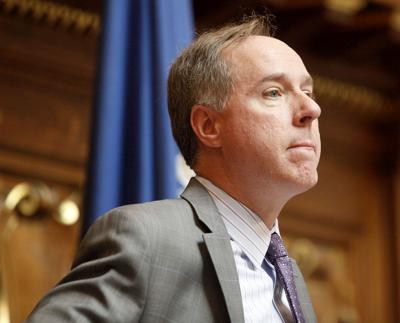Republican lawmakers in the Wisconsin Assembly say their campaign finance bill would offer some long-overdue fixes to the state's existing statutes. But critics say it would make contribution limits meaningless and deregulate the entire system.
The bill is designed to bring state law up to speed with court rulings governing campaign finance, its supporters said. Assembly Speaker Robin Vos, R-Rochester, argued Wednesday that regardless of one's opinion on those court decisions, the statutes must be updated to provide consistent, clear information about the state's rules.
Vos said the bill makes it "easier to participate in democracy," "protects a free and vigorous debate" and clearly spells out what is expected of elected officials.
The legislation would double the amount of contributions that state and local candidates could receive from individuals, and would adjust that limit for inflation every five years.
Under current law, candidates for governor, lieutenant governor, secretary of state, state treasurer, attorney general, state superintendent or justice are bound by a $10,000 individual contribution limit. That would be doubled to $20,000 under the proposed law. Individual contributions to state Senate candidates are capped at $1,000 and $500 for Assembly candidates under current law.
Under the bill, political parties and legislative campaign committees could make unlimited donations to a candidate committee.
The bill would allow legislative campaign committees and political parties to receive unlimited contributions, with the exception of a $12,000 per year limit on PAC contributions to those committees and parties.
The legislation would allow unlimited contributions to be made to and transferred between political action committees. Recall committees and referendum committees could also receive unlimited funds, and unlimited funds could be donated to pay expenses related to a recall or recount. Candidates could also make unlimited personal contributions to their own committee.
The proposal would ban candidates from coordinating with outside groups on express advocacy — calls to vote "for or against" a candidate — but would place no restrictions on coordination on issue advocacy.
Issue advocacy avoids telling voters to elect or defeat a candidate and instead focuses on a candidate's policies. The state Supreme Court ruled in July that kind of coordination is legal, as a matter of free speech.
By legalizing coordination with issue ad groups and creating an environment in which a donor could give unlimited funds to a political party which could, in turn, give unlimited funds to a candidate, Common Cause Wisconsin executive director Jay Heck said the state's campaign finance system will become "basically unregulated"
"If this becomes law, anything goes in Wisconsin, and the contribution limits are merely cosmetic, because there are many other ways to be able to funnel money and influence money that the limits themselves become sort of a sideshow," Heck said.
The GOP bill would also allow corporations to donate to political parties and committees, but not candidates, a move Vos said would "provide parity" for labor unions and corporations.
Candidates would file more campaign finance reports than they do under current law, and independent expenditure groups would be required to file similar reports — something Republican lawmakers said will increase transparency and accountability.
"The very idea of having more money flow through an open, transparent process should be an idea everyone can get behind, regardless of your political party," Vos said.
Assembly Minority Leader Peter Barca, D-Kenosha, said he is taking time to review the proposal — but his initial reaction was negative.
"I find the Republican leadership priorities for the fall session disturbing and I believe citizens will react very negatively when they learn Republicans think we need even more money in our elections and that corporations need an even greater influence over our elections and state government," Barca said in a statement. "Republicans want to make it easier for corporations to ‘participate in our democracy’ at the same time they have made it increasingly difficult for citizens to do so, by degrading voters’ rights and threatening our open records laws."
The rules would take effect on the first day of the first full reporting period following the law's publication.



